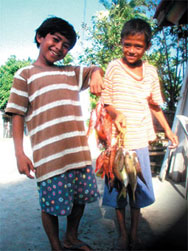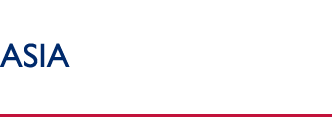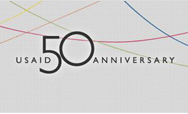 
ContactsAssistant Administrator
Nisha Desai Biswal
Senior Deputy Assistant Administrator
Denise Rollins
Deputy Assistant Administrator
Gregory Beck
Senior Policy Advisor
Amy Searight
Press Inquiries
U.S. Agency for International Development
Office of Press Relations
Ronald Reagan Building
Washington, D.C.
20523-0016
Tel: 202-712-4320
Fax: 202-216-3524
Public Inquiries
USAID Missions
Asia
Overview
USAID operates in 20 countries in Asia, from Kazakhstan in the west and north to Papua New Guinea in the east and south. In recent years, this vast and diverse region has experienced vibrant economic growth and significant advances in poverty reduction. Today, many countries in Asia are well on their way to becoming developed economies; others, meanwhile, struggle to provide basic services and opportunities to their citizens.
Challenges
Ensuring that economic growth is equitable and sustainable remains a challenge throughout Asia. Despite its strong economic growth, the Asia region is home to approximately two-thirds of the world's poor. While literacy rates have improved in the region overall, a large gender gap remains, particularly in South Asia, where literacy and enrollment rates for girls remain low. Rapid industrialization associated with economic growth is straining the region's environmental systems. Urban air pollution levels in the region are among the highest in the world, and the consumption of natural resources is occurring at an unsustainable rate.
Countries in Asia also face unpredictable challenges in the areas of health, natural disasters, and conflict. In Asia, as in many parts of the world, HIV/AIDS is destroying communities and bankrupting social systems. In addition, health systems in the Asia region struggle with the growing global threats of avian influenza, tuberculosis and malaria. Frequent natural disasters, such as the 2011 earthquake and tsunami in Japan and the 2008 Sichuan earthquake in China, strain the region's already limited resources. In addition, isolated but ongoing conflicts continue to jeopardize peace, stability, and development in the region.
Finally, although respect for political rights and civil liberties has improved in the region overall since 1990, many countries in Asia continue to restrict these rights. Weak governance in parts of Asia contributes to instability that feeds extremism.
USAID's Response
USAID responds to these challenges with innovative programming that emphasizes economic growth, poverty alleviation, education, health, disaster preparedness and democracy to create a more secure, democratic and prosperous region.
USAID's work in the Asia region includes:
- Protecting our vital regional interests by strengthening ties with countries that share our democratic values and building upon successful counter-terrorism programs.
- Promoting freedom, democracy, and human rights by, among other things, supporting democratic institutions; nurturing civil society in the Central Asian Republics; and pressing for the transition to a democratic government in Burma.
- Expanding trade and investment by fostering development where reducing poverty is key to peace and security; improving the business climate and economic competitiveness; promoting transparency and fighting corruption; protecting intellectual property; supporting poverty reduction; and promoting sustained economic growth.
- Developing regional institutions such as ASEAN and APEC, through multilateral cooperation.
- Promoting sound environmental conservation and energy practices.
- Improving quality of life by educating people and combating infectious diseases.
Each country program in the region is guided by a multi-year strategic plan that identifies the sectors in which USAID will work and estimated levels of funding. The Asia Bureau and field offices work in close partnership with U.S. and local non-governmental organizations, private businesses, universities, international organizations and the governments of host countries to achieve long-lasting results. In 2011, the Asia Bureau is managing nearly $1.2 billion in U.S. assistance across the region.
Back to Top ^
|




